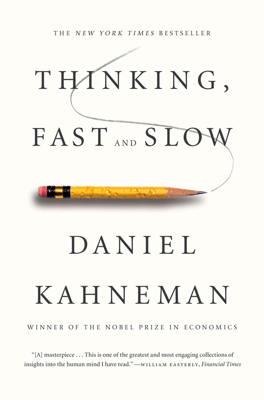Bad Events
Understanding Loss Aversion
Loss aversion, a fundamental psychological principle, suggests that the pain of losing is more impactful than the pleasure of gaining equivalent value. This chapter explores this concept through different scenarios, demonstrating its influence in areas like negotiating, business pricing policies, and legal judgments.
Negativity Dominance and Biological Reactions
Humans and animals are biologically wired to respond more quickly and intensely to negative stimuli than to positive ones. This negativity dominance is evident in how the brain's amygdala reacts more significantly to threats than to rewards, which underscores the survival advantage of quickly identifying potential danger. Additionally, negative words attract attention faster than positive words, illustrating the pervasiveness of loss aversion across different contexts.
Practical Examples of Loss Aversion
Golf Performance: Professional golfers demonstrate more accuracy in putts when they putt for par (to avoid a bogey) than for a birdie. This behavior, driven by loss aversion, shows that avoiding losses (bogeys) motivates more effort than achieving gains (birdies).
Business and Economics:
- Negotiations and contracts often falter on perceived concessions because losses stand out more vividly than equivalent gains.
- Employers and service providers avoid imposing losses on current prices or wages due to the potential perception of unfairness and the possible repercussions of dissatisfied stakeholders.
- Economic research indicates that unfair pricing or wage practices can significantly impact business outcomes. For instance, customers reduce purchases when they perceive that they have been charged unfairly.
Loss Aversion in Legal Contexts
Loss aversion not only impacts individual behavior and business decisions but also influences legal frameworks. The legality often underscores distinctions between actual losses and unrealized gains. For instance, laws tend to favor compensating individuals for tangible losses over hypothetical gains, reflecting a deeper societal and psychological inclination to mitigate the impacts of loss.
Broader Implications
Social and Psychological Stability: Loss aversion contributes to conservative behavior, urging individuals and institutions to adhere to the status quo. This aversion helps maintain stability in personal lives and societal structures by creating a strong resistance to change unless it's essential for avoiding greater losses.
Fairness and Morality in Transactions: The principle of fairness in economic transactions is deeply entwined with loss aversion. Actions perceived as profit-seeking at the expense of others, particularly when they inflict losses, are generally frowned upon and can lead to social or economic sanctions.
Altruistic Punishment: Observers are willing to punish unfair actions even when they are not personally affected. This behavior, rewarding in its own right, suggests social mechanisms played a part in preserving fairness and discouraging actions dominated by loss aversion.
This exploration of loss aversion illuminates its foundational role in diverse areas from individual decision-making and sports performance to business practices and legal standards, underlining its ubiquity and power across human thought and behavior.
